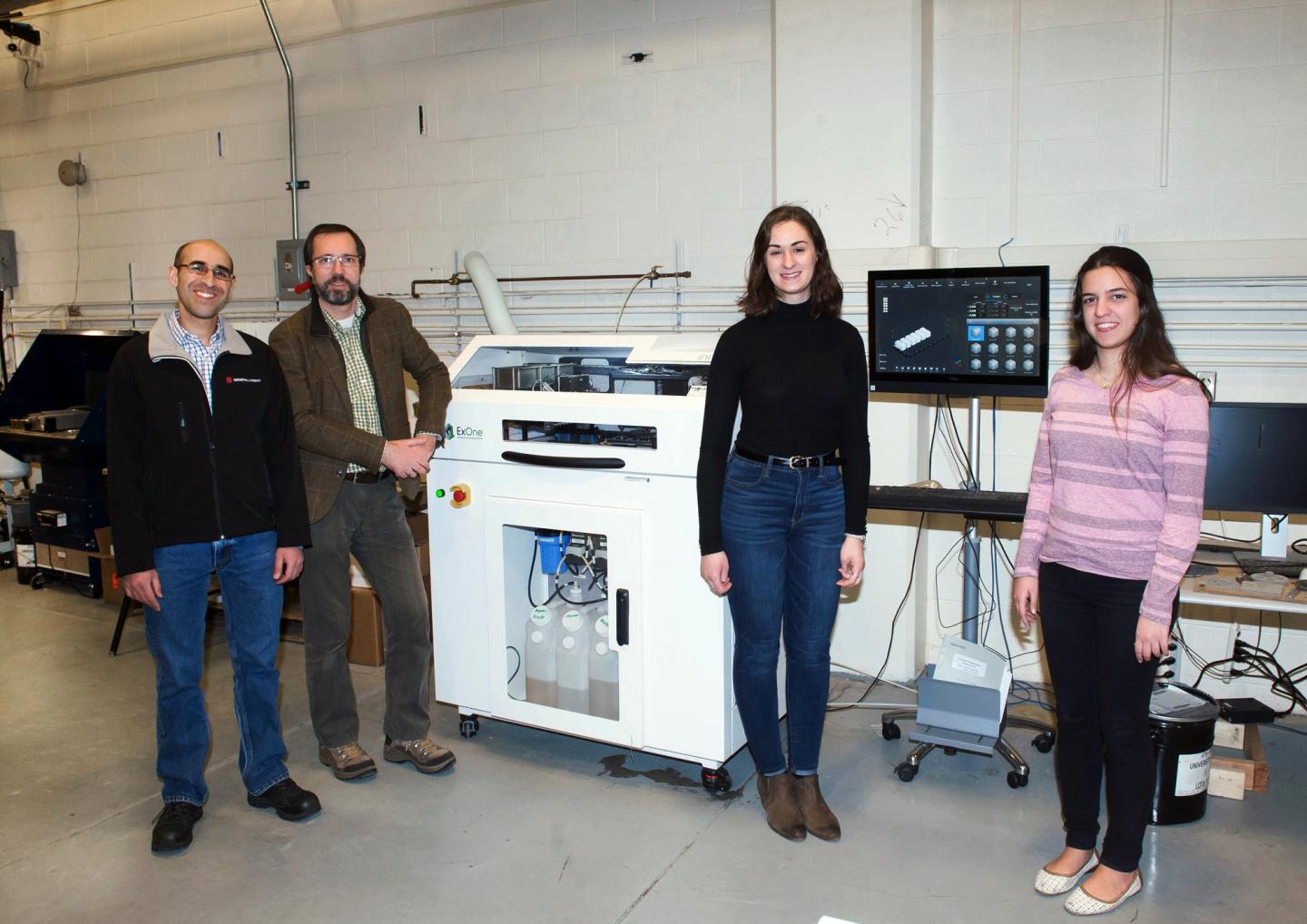The University of Pittsburgh’s Swanson School of Engineering and General Carbide, a Pennsylvania-based manufacturer of compound metals, have received a $57,529 grant to research the use of tungsten carbide in additive manufacturing.
This grant was financed from the Commonwealth of Pennsylvania’s Department of Community and Economic Development (DCED) and the first round of the PA Manufacturing Innovation Program (PAMIP). Dr. Markus Chmielus, an Assistant Professor in the Mechanical Engineering and Materials Science Department, University of Pittsburgh, explained:
“Additive manufacturing is increasingly adopted by industry to build highly complex metal parts, but the rapid local heating and cooling during energy beam-based 3D metal printing produces large thermal gradients which causes tungsten carbide to crack.”
“Binder jet 3D printing is more effective because it selectively joins powder particles with a binder, one microscopic layer on top of another and without any temperature fluctuations during printing.”

Additive manufacturing and tungsten carbide
An inorganic non-natural compound, tungsten carbide is made from Wolfram, a rare metal found naturally on Earth, and carbon. Its basic form consists of a fine gray powder which can be pressed and formed into shapes via sintering for use in industrial equipment.
Despite its versatility, the material is prone to fractures and breakage when exposed to the extreme laser melting process used in metal additive manufacturing. Thus, Dr. Chmielus and General Carbide will investigate various tungsten carbide base powders that can be utilized in a binder jet 3D printer.
Furthermore, the partners are seeking to optimize the additive manufacturing sintering processes. Drew Elhassid, Chief Metallurgist and Manager of Lab, Pressing and Powder Production at General Carbide, stated:
“This research will enable General Carbide to expand our portfolio with more complex and versatile parts at a lower cost by partnering with the Swanson School and leveraging its expertise in binder jet 3D printing and additive manufacturing process optimization.”
“Additive manufacturing is especially useful when needed to create the most demanding but low-count parts that we wouldn’t necessarily build on a consistent basis.”

3D printing and the University of Pittsburgh’s Swanson School of Engineering
In addition, the funds awarded will fund materials science and engineering students Katerina Kimes (graduate) and Pierangeli Rodriguez De Vecchis (undergraduate) as fellows in fundamental and applied research.
Moreover, cost-share from the Swanson School of Engineering and General Carbide will provide a total funding of $145,000.
Last year, scientists at the Swanson School of Engineering proposed the use of 3D printed phantom heads for MRI testing. The artificial models are designed as an alternative for humans in the analysis and calibration of MRI equipment.
Submit your nominations now for the 3D Printing Industry Awards 2019.
Also, for the latest 3D Printing Industry updates subscribe to our newsletter, follow us on Twitter and like us on Facebook.
Seeking a fresh start in the new year? Visit 3D Printing Jobs to commence your career in additive manufacturing.
Featured image shows Carbide part samples from General Carbide Corporation. Photo via the University of Pittsburgh.


